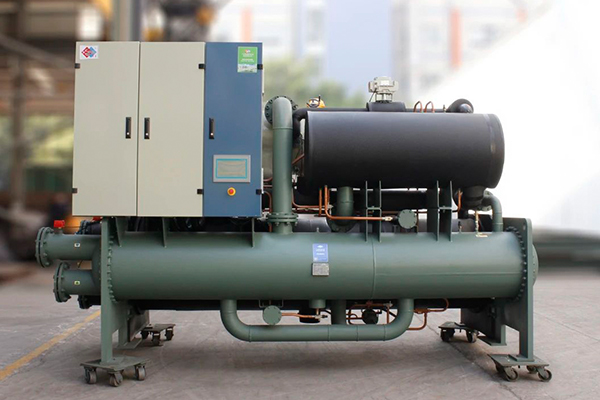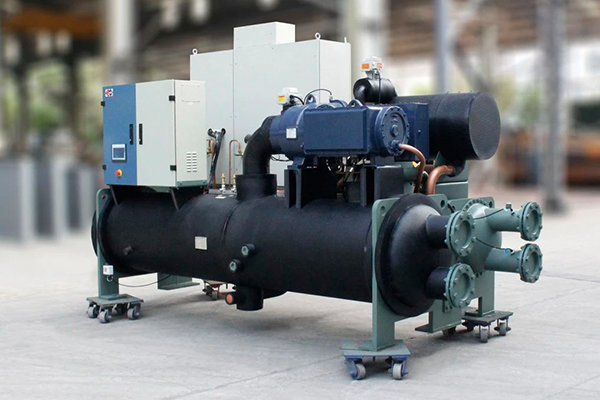In the chemical industry, the system's cooling source is a crucial element that ensures smooth production processes. As technology advances and industrial production scales expand, the demand for efficient and reliable cooling equipment is growing. Centrifugal water-cooled chillers, as advanced refrigeration units, are becoming increasingly important in the chemical industry’s system cooling.
How Do Centrifugal Water-Cooled Chillers Work?
Centrifugal water-cooled chillers achieve cooling through a refrigerant cycle. Inside the unit, the compressor compresses the refrigerant into high-temperature, high-pressure gas, which then enters the condenser to exchange heat with cooling water, causing the refrigerant to condense into a liquid. The liquid refrigerant then passes through a throttling device, reducing its pressure before entering the evaporator. In the evaporator, the refrigerant absorbs heat from the substance being cooled and evaporates into gas, achieving the cooling effect. This cycle repeats continuously, providing a stable cooling capacity essential for chemical production.Why Are Centrifugal Water-Cooled Chillers Beneficial for the Chemical Industry?
1. High Cooling Capacity:
Centrifugal water-cooled chillers can meet the demands of large-scale chemical production lines, providing sufficient cooling.
2. Reliable and Continuous Operation:
These chillers are designed for stable and reliable performance, capable of operating continuously for long periods, ensuring uninterrupted production processes.
3. Energy Efficiency and Environmental Friendliness:
Centrifugal water-cooled chillers are known for their energy-efficient operation, reducing both energy consumption and environmental impact.
Key Considerations When Using Centrifugal Water-Cooled Chillers
1. Maintain a Clean Environment:
Ensure that the chiller's surrounding area is clean and free of dust and debris to avoid any operational issues.
2. Regular Maintenance:
Regularly inspect the cooling water system, including pumps, pipes, and cooling towers, to ensure they are functioning correctly.
3. Check Electrical Connections:
Periodically check the chiller's electrical connections to ensure they are secure and functioning properly.
Selecting and Configuring Centrifugal Water-Cooled Chillers
To fully leverage the advantages of centrifugal water-cooled chillers in the chemical industry, it is essential to select and configure the equipment properly. Selection should be based on the actual cooling requirements of the chemical production process, including factors like cooling capacity and water flow rate. Additionally, it's important to consider the chiller's energy efficiency, noise levels, and other performance indicators to ensure it meets both production needs and environmental standards.
Technological Innovations in Centrifugal Water-Cooled Chillers
The chemical industry is continually evolving, driving technological advancements in centrifugal water-cooled chillers. Some advanced chillers now feature intelligent control systems, enabling real-time monitoring and automatic adjustments to enhance efficiency and stability. Additionally, new refrigerants are being developed and applied, offering more environmentally friendly and efficient cooling solutions.
Conclusion
Centrifugal water-cooled chillers play a vital role in the chemical industry’s system cooling. Through proper selection, configuration, and the application of technological innovations, these chillers can significantly improve performance and efficiency, ensuring smooth chemical production. As technology continues to progress and environmental standards rise, the application of centrifugal water-cooled chillers in the chemical industry will become even more widespread and impactful.

评论
发表评论